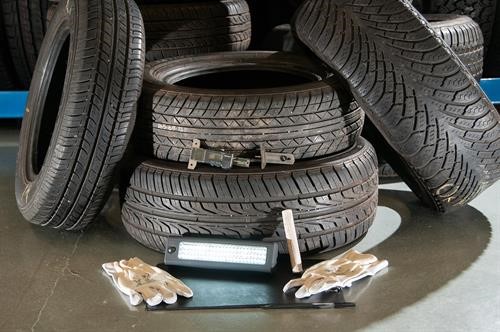Tyres have topped the most common failure item for MOTs in the UK, according to an analysis of over 38 million cases.
Insurance broker One Sure Insurance analysed the DVLA's MOT database to find the most common causes of MOT failure among Class 4 vehicles (cars, vans, motorhomes, and other smaller commercial vehicles).
Across all four tyres, poor condition, or not meeting the legal requirement of at least 1.6mm of tread depth contributed to 1,101,839 MOT failures across the UK in a single year.
The driver-side front tyre tread depth accounted for more than a quarter of these, the equivalent of 368,853 MOT failures.
In second place, the cause of 1,069,069 MOT failures are damaged coil springs located in a car's suspension.
Fractured or broken front passenger side coil springs accounted for 346,383 of MOT failures in this category.
Headlamp aim takes third place, as the cause of 806,993 MOT failures.
Headlamp aim being incorrect, too high or too low, can impact visibility not just for the driver but other users on the road.
Headlights can become mis-aligned for several reasons, including damage to the fittings or headlight bulbs simply expanding with age on older cars.
The projected beam being incorrect is the leading cause of failure in this category, accounting for 433,681 MOT failures.
Interestingly, the driver's side tyre depth being below 1.6mm is the single most significant cause for failure of an MOT, with 368,853 MOT failures.
According to a YouGov poll, Britons are most likely to change their tyres only when it is absolutely necessary.
Three in five car owners (60%) switch them out only when carrying on using them becomes untenable, which helps explain why they are the biggest cause of an MOT failure.
The study also found that of the 38,155,866 MOT tests carried out on all classes of vehicles in 2021, almost one in five resulted in failure.





















Login to comment
Comments
No comments have been made yet.